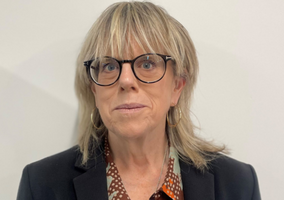Overall, the survey findings are encouraging. I don’t think it’s at all surprising that trustees think it’s really important for charities to campaign, not only on the narrower interpretations of their mission but on issues that cause the problems that charities are working on.
I also don’t think it’s surprising that trustees expressed some uncertainty about exactly where the boundaries are, because there’s been so much needless controversy around charities campaigning. I believe very strongly that it’s not even about charities having a right to campaign – it’s about the people who rely on charities having a right to expect charities to campaign. If we don’t campaign for change then all we will ever do is pick up the pieces.
Role of the CEO
I’m very interested in the chief executive’s role in all of this. As people running charities, we have a strong set of beliefs and experience. We’re not just guns for hire; we do actually believe in what we’re doing. So, for instance, I still talk about feminism and violence against women quite a lot, because that’s very important to me – it’s why I went to work at Women’s Aid. Those beliefs and values stay with me from role to role.
Anyone who works for any organisation has a responsibility not to bring that organisation into disrepute, or to needlessly tie up resources. So I know that if I were to say something very controversial that was way outside Shelter’s remit, that could tie up Shelter’s resources in firefighting a situation that isn’t directly related to its mission. So there are sensible boundaries, obviously. But within those, I think it’s important that charity CEOs are part of the national discourse, and are true to their beliefs and opinions.
Boundaries of mission
If ever I were invited onto Question Time to speak about the housing emergency – and this is hypothetical, because I never have been – and might then be asked to comment on entirely separate issues, there are two things I would do. The first is to ask myself: Is it very beneficial to Shelter’s objectives for me to be on a programme like that? If it is – and I think it probably would be, on balance – then I would try to find out from the show’s producers beforehand what issues are likely to come up. But I do think it’s perfectly possible to walk a line where you avoid saying anything that negatively affects your charity’s reputation or ties up its resources in firefighting.
Discussions with board members
I wasn’t that surprised by the low numbers of respondents whose boards had actively discussed these issues. But I do think it’s up to chief executives to initiate these conversations with their chairs, and to keep those conversations going. I’ve joined a lot of charity sector groups, including the Charity Reform Group and the Better Way Network, and I make sure that my board knows what I’m involved in outside of Shelter, and what I’ve commented on. I’m always acutely aware that the question everyone is thinking is: What’s the impact on Shelter? But they know that I am always thinking that too.
In a good chair-chief executive relationship, there’s a framework that is set within which the chief executive operates – an understanding of boundaries that is developed over time. If the CEO needs to do or say anything outside of that framework – which does happen, as new things crop up, and circumstances change – then the chief executive should raise that with the chair and they should tackle it together.
The Middle East conflict
When the Israel-Hames war broke out, our executive team briefly considered whether we should speak out about it, but quickly decided not to. I don’t think we have the credibility or expertise to comment on what is a very difficult and complex situation, and also, our resources are already incredibly stretched just dealing with the housing emergency.
That all said, it is a judgement call for each organisation. I wouldn’t criticise another charity for deciding that they did want to talk about it. In the past, we have spoken out about refugees from Syria and Ukraine who ended up homeless, or in unsuitable housing, in this country. And we were one of the first charities to release a statement about Black Lives Matter after George Floyd’s murder. But that was slightly different because it was a global movement for anti-racism that we wanted to be a part of. It had shone a light on our inadequacies internally, and we wanted to make a public commitment to anti-racism.
But it can be easy to bring a load of anger down on your head, which then ties up your organisation in a lot of difficulty and extra work. There’s a lot to weigh up, as an organisation, when you’re deciding what you speak about and what you don’t.*
*As told to Tania Mason
Polly Neate is CEO at Shelter
Related Articles












